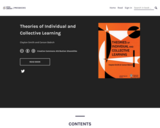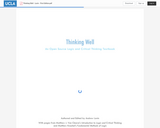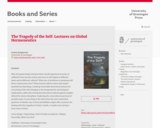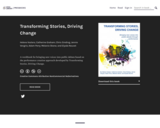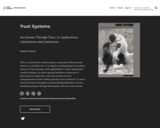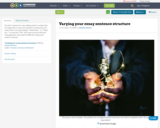Religions of the World in Philosophical Perspective
Short Description:
The book explores the world's major religions using a philosophical context that best represents the nature of the religion
Long Description:
TAKEN AS ORGANIZED ENTITIES, the world’s religions are an amazing lot, to say the least. Yet, books about religion often emphasize the factual and visual details, and narrative expression of a religion without necessarily providing a narrative philosophical framework for exploring the tradition. Transcendent Realities: Religions of the World in Philosophical Perspective attempts to provide just such a context for assessing a given religious tradition: a philosophical concept reflecting the religion as a cognitive or intellectual whole. As such, this book welcomes readers to explore religion from a more philosophically informed and enlightened perspective.
Although the book features twelve of the world’s foremost religions as its primary emphasis, it also provides a brief philosophical foundation for each religion as the primary basis for contextualizing the tradition. Consequently, the religions are explored with attention to a primary philosophical structure or context that attempts to capture the essence of, or, at least, the philosophical superstructure that perhaps guides the tradition. Relevant to the religions chosen for exploration, the book is organized according to a primarily geographical order, although its emphasis on an east to west approach as its geographic development may also suggest an historical or chronological progression. The book focuses first on representative Indigenous African and North American religions, then Far Eastern religions, Eastern Indian religions, and finally the Western religions. The book does not go into an exploration of new religions as these are typically in the pre-developmental stage relevant to their philosophical conceptualizations.
Among the key features of the book is use of visuals placed within the reading content in a way designed to enhance the more philosophically reflective inquiries the study of religion naturally inspires. Combining the visual with the literary is of itself a philosophical enterprise, and doing so when engaged with religious phenomena can make for a more uniquely interesting and engaging reading experience. The author’s primary intent with the visuals is to stimulate philosophical reflection during the reading experience, and yet without the visuals taking away from the reading content.
Finally, the book does not include assessment supplements such as a test bank, video, or companion website study materials. Instead, the requested approach to assessment stemming from the book for those using the book in an academic setting is to stimulate construction of uniquely applied testing or other materials that reflect the phenomenon of engagement with the book and its ideas and approaches to the content. Each instructor may choose to emphasize their own key points of interest, and for this reason the making of a one-type-fits-all approach to assessment materials seemed restrictive at best. Sixteenth-century French theologian John Calvin once stated that one’s “immediate intuition” with a text is the finest and most exemplary essence of its assessment; perhaps instructors should craft their own assessment materials based on student’s recent engagement with the materials.
This book has been a long time in the making, and reflects not only a variety of classroom experiences, but a lifetime of religious interest and involvement. In many respects, if it may be true that people are the sum total of their thoughts and experiences, as the Buddhist might say, this book reflects the sum total perspective on what I’ve discovered in attempting to understand my own religious views, traditions, and the views of others over the years.
The author wishes to thank the 4,000+ students who have taken my course in World Religions over the past 12 years, and especially to the University of West Florida for the grant necessary for the writing of this book. I’m also further indebted to Dr. Amy Cook and Dr. Erin Stone for their excellent current leadership of the Department of History & Philosophy at UWF, and to Dr. Sally Ferguson and Dr. Brian Hood for their past leadership when the department of Philosophy was a stand-alone entity.
In a world of radically increasing cultural complexity, and with this the difficulties involved when religion is introduced and engaged, it is my hope that this book can help contribute to a more truthful, peaceful, enlightened, and perhaps more accepting or empathetic world. If religion exists as the great ennobling force for an increasing civilized and refined humanity that many of its proponents espouse, then a keen exploration of the religions of the world is no doubt a necessary venture. This book will hopefully help to provide this adventure to those who seek it.
Word Count: 157836
(Note: This resource's metadata has been created automatically by reformatting and/or combining the information that the author initially provided as part of a bulk import process.)

